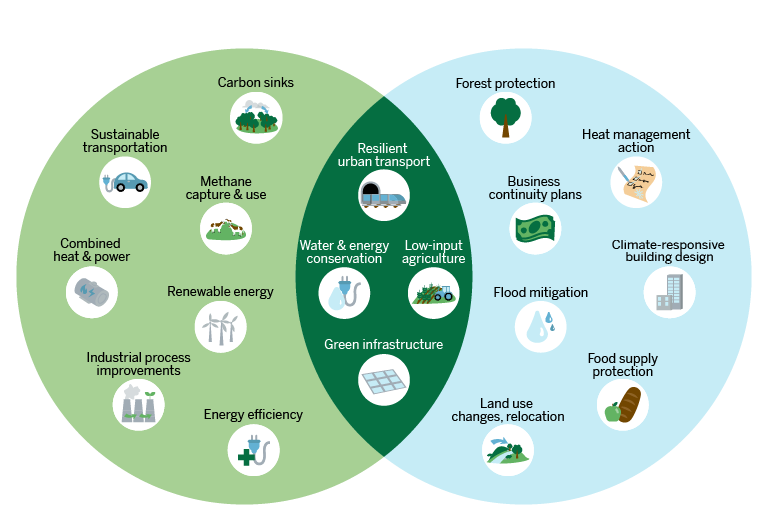
INDIANA – The Environmental Resilience Institute’s Resilience Cohort program helps Indiana city, town, and county governments to measure and reduce local greenhouse gas emissions and implement climate resilience strategies.
The Environmental Resilience Institute’s Urban Green Infrastructure Cohort is a new program that facilitates science-backed, equity-based tree canopy cover assessment, tree planting, and maintenance programs for Indiana cities of any size.

Participants join a cohort of peers, and each local government receives one-on-one guidance, attends cohort training webinars, gains the opportunity to host a McKinney Climate Fellow, and more. Through this program, more than 30 local governments in Indiana have conducted community-scale greenhouse gas inventories. Many have adopted or are finalizing climate action plans to reduce emissions.
Cities and towns will receive up to 100 trees to be professionally planted and cared for in disadvantaged areas, in addition to staff and resources that help engage with the community and provide equitable access to the benefits of trees.
Thanks to support from the USDA’s Urban and Community Forestry Grant, the organization will provide selected cities and towns with a value of up to $142,000 in tree planting resources.
Pathways to resilience
Planning for climate change involves two equally important pathways: climate change mitigation and climate change adaptation. The first focuses on mitigating the cause of global climate change—greenhouse gas emissions from the burning of fossil fuels. This aspect of climate planning involves assessing or measuring GHG emissions, planning reduction strategies, and implementing those strategies. The second half of holistic climate planning focuses on adapting to the climate change impacts that are unavoidable, many of which Hoosier communities are already feeling.

Climate change adaptation planning involves assessing vulnerabilities to climate change impacts, planning strategies to build resilience to those impacts, and implementing these strategies. All climate planning strategies should be co-developed with the community, centering equity in their approach.
2024 Resilience Cohort
The 2024 Resilience Cohort Program will conduct two implementation-focused tracks:
- Resilience Cohort: Climate Action Accelerator
- Resilience Cohort: Urban Green Infrastructure
All participants will host a full-time, in-person McKinney Climate Fellow (MCF) from May to August 2024. All Indiana city, town, county, or regional collaboration of local governments are eligible to apply.
Benefits of the Resilience Cohort:
- An embedded student fellow for 400 hours over the summer
- Access to trusted subject-matter experts
- Professional skill-building for local government staff
- Significantly subsidized costs
Participants can expect to invest an average of 5-7 hours per week during the summer. Participants will attend Cohort trainings and workshops, lead activities and engagement within their own community, and supervise the fellows.
Applications from any Indiana city, town, county, or regional collaboration are being accepted through Thursday, Nov. 30, 2023.



